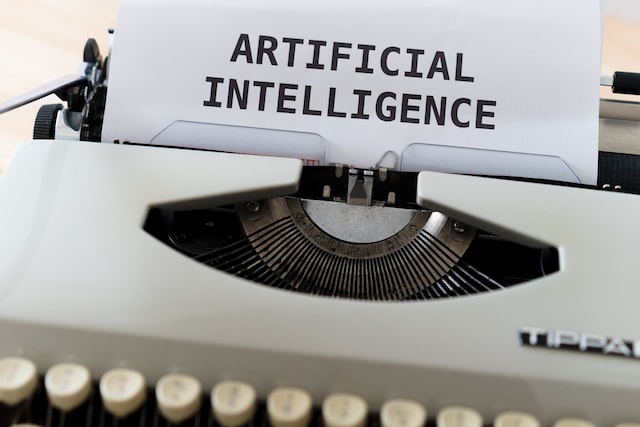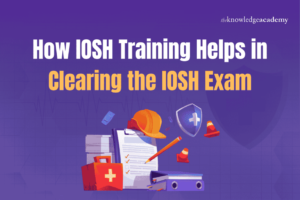Artificial Intelligence, commonly known as AI, equips machines to work as human beings. It empowers computers and machine-controlled robots to perform tasks that are primarily done by intelligent, sentient beings. Artificial intelligence is growing at a swift speed. It is moving out of laboratories and paving its way into real-world businesses and consumer applications. We get to see Artificial Narrow Intelligence already providing its best to some of the most significant technology businesses of the world today, such as Google, Amazon, Apple, Amazon, Spotify, etc.
As AI is helping the world business to shape up in terms of convenience and speed, AI institutes are also focusing on a specific aspect of Artificial Intelligence, known as Applied Artificial Intelligence. Applied AI course has already gained a lot of popularity amongst both young and experienced AI aspirants, and its application is being greatly used in businesses worldwide.
What is Meant by Applied Artificial Intelligence?
Applied AI or Applied Artificial Intelligence is a subset of Artificial Intelligence that is used to enhance and outspread software applications. Businesses that work with applied artificial intelligence are considered to be outperforming other companies in terms of accuracy, capability, delivery, convenience, cost, branding, availability, engagement, and others.
Most companies that are using applied AI, are using Machine Learning (ML) to mechanize decision-making with profound accuracy. Applied artificial intelligence is also used to emphasize continuous learning from process and feedback data. Applied AI is used for filling in the loopholes that are made by humans. Another usage of applied AI is to monitor applications for quality and bias.
Switching to Applied Artificial Intelligence
In the initial stages of AI, machines used to perform human tasks in a separated, isolated environment. AI worked alongside humans, but not with them. But with time, the capabilities of Artificial Intelligence have grown, and the latest models call for machines that are qualified of working with humans — side by side, in a more unified way. Industries, such as financial firms, healthcare, and others, often find it challenging to develop a cross-enterprise strategy for themselves that can provide a thorough structure to AI and direct the way to applied intelligence. One chief aspect of this is to create a work environment that can enable more nuanced incorporation between humans and machines — an environment that challenges and elevates human capabilities.
Principles of Applied Artificial Intelligence
When it comes to the application of artificial intelligence, we can see AI-driven businesses working with an improved emphasis on end-to-end process automation. We can also see extensive usage of advanced machine learning or ML techniques along with an improved performance of machines as well as model accuracy. With the usage of artificial intelligence, we get to see human judgement, human performance, and computerised predictions being used appropriately. Business applications work with continuous learning and adaptation through feedback loops, so that they can make an approach towards restricting the impact of model error and bias.
There are many businesses that find it difficult to start working with artificial intelligence, owing to the complex nature of the latter, and because of the fact that there are many aspects in a business that can be worked with AI. With the aid of artificial intelligence, businesses can improve greatly in their overall performance. Mentioned below is a thorough framework that will provide an understanding to companies who are beginning to adopt AI. So, let us go on a journey, and have a detailed understanding of what applied AI involves in itself and its various processes.
The Beginning of Applied Artificial Intelligence
Artificial intelligence can potentially affect any business and job role through either automation or augmentation. It can strongly impact business value by inserting insights into existing optimizing processes. Applied Artificial Intelligence can also generate opportunities in order to redefine absolutely new and virgin processes that were not available before, even with a lot of human effort. According to applied AI courses, in order for a business to detect these areas where the requirement of AI is profound, they have to first learn what it controls or should control. Businesses must also learn where and how they can leverage improved outcomes, and have the maximum benefit for themselves. There is another business matter that also needs serious observation, such as certain business processes that involve human judgement. A business has to thoroughly understand this area and learn which parts of it should be optimized, amplified, automated or reinvented.
Applied AI Processes Used by Businesses
Integration:
A business incorporates AI-enabled processes through APIs for making better intuitive software interfaces for their customers. Incorporating human judgement is also highly recommended for improving data-driven predictions. A business should also leverage its customer base, its own domain experts, and crossword engines to increase model predictions. They should also enable continuous learning through processes, such as observation, measurement, and the improvement of outcomes as actions distributed within a business process.
Model:
The very first step while selecting a model is to establish the preferred level of performance from a strict business perspective. A business needs to select techniques in order to prepare machine learning models that will help them acquire its desired results. It will also help businesses to fix budgets, and set target-oriented objectives for the business. Businesses that do not have proper business planning, and detailed knowledge regarding the achievement of objectives for error and bias, will be faced with increased risk and reputational harm. Using applied AI helps a business overcome this peril and help them drive towards a better prolific future. Business differentiation comes from the optimal combination of model integration, the model techniques, and training data required to optimize models.
Data:
The type and volume of data that is required for applied artificial intelligence depend entirely on machine learning techniques chosen by professionals. This data may as well be previously collected by businesses, or they may have access to it, or the data, in some cases, may need to be acquired from their own sensors or third parties. For this specific process, businesses need to develop proper plans and work with more functional infrastructure to acquire and filter relevant data that support their AI models and adjust frequency and coverage as needed.
Governance:
Businesses need to keep a close eye on their overall performance factor, and by doing so, they need to build customer trust. Ensuring sufficient knowledge of models and data to satisfy the expectations of repetitiveness and the power of interpretability will help a business remain in the market. Adapting to a better strategic marketing environment will be beneficial as well.
Get Started with an Applied AI Course:
Data is an evolution in itself, and working with applied AI is nothing short of evolution for any company or organization. The starting point may vary from one business to another, but the ones who are ready to mould themselves in accordance with modern business rules, are imperative in ruling the market.
There are plenty of data science institutes that teach Applied AI courses, and there are plenty of job roles that an AI professional can apply for. The world truly needs more data-driven minds.





Be First to Comment